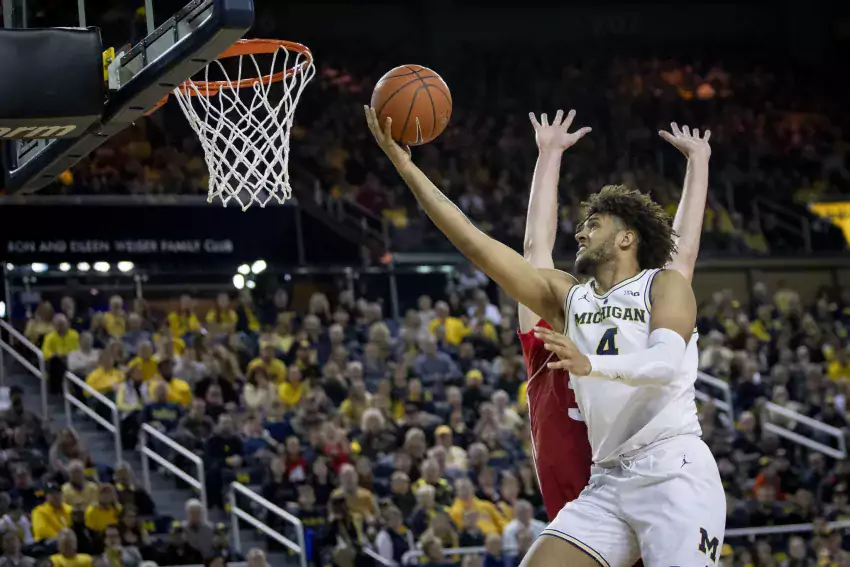big ten baseball should GTFO

Thanks to the inaction of the conference over decades of shortsighted corruption at the NCAA, the Big Ten is a mid-major when it comes to America's Pastime, and that mid-major conference is now watching a Major pick off its best head coach in a century. Per reports, Bakich has accepted the open Clemson job.
Sources: #Michigan HC Erik Bakich is leaving for #Clemson. https://t.co/653hBf6Qdo
— Brandon Justice (@BrandonJustice_) June 15, 2022
Also per reports, Clemson, which plays in the ACC, and where Erik Bakich got his first assistant job in 2002 before moving on to Vanderbilt, tripled Erik Bakich's salary; he was making $400k/season at Michigan and would be getting $1.2 million/year or thereabouts after bonuses. For college baseball that is a Saban-to-LSU contract (only Vanderbilt, TCU, and Louisville pay their coaches more than $1 million), and as long as they play in a mid-major conference it made no sense for Michigan to pony up anything in the ballpark.
In ten seasons at Michigan, Bakich led baseball to a 328-216 record, two conference tournament championships, five NCAA Tournament appearances, and to within one win of a National Championship in 2019, their first World Series appearance since Barry Larkin was at shortstop. Bakich's .603 winning percentage is higher than that of Don Lund and Moby Benedict, and the best of any coach here since 1989. The future was looking even brighter; because the sport's recruiting cycle is so long, this year's and next year's freshmen were the first recruited with Michigan in mind as a contender. As Bakich said last week "we've got some absolute dudes coming in here." Certainly, some of those absolute dudes might not be coming anymore.
But such is life for a school in a conference that doesn't care about the sport. Over the last 30 years, an alliance of big and small schools in the South have pushed the baseball and softball seasons deeper into winter, forcing northern teams to play tournaments in Florida, Arizona, and California in January, February, and March, before trying to squeeze in a conference schedule in April and half of May. They've also allowed the NCAA to limit schools to 12 scholarships (which can be divvied up in fractions) per sport. It's an arrangement that's great for Southeastern power schools, which no longer have to compete with the moneyed programs, better degrees, and richer baseball histories of the North for top talent, and have always supplemented the meager scholarship restrictions by other means. It's also perfect for small southern programs, which often get to host those tournaments, and don't have to divert funds from football to be reasonably competitive. Talk of the Big Ten joining with other northern conferences to stem this tide, either by threatening to leave the NCAA, doing so, or hosting a second season over the summer, has thus far only amounted to that.
Michigan is in considerably better shape than when Bakich arrived, and has a couple of very good options to replace him from his direct coaching tree. Detroit Tigers pitching coach Chris Fetter is a rising star in the sport and coached at Michigan through the 2019 run, though he's probably not interested in coming back unless he desires the lifestyle. Assistant head coach/infield coach Nick Schnabel has been with Bakich since he arrived, and should be ready to take the head job if Fetter wishes to remain in the majors. If they go outside the program, they won't have to go far; CMU's Jordan Bischel has been interviewing for major jobs. Either way, assistant coach/former Tiger Brandon Inge has deep local ties and would be likely to stick around. Current pitching coach Steve Merriman was probably gone either way.
Thus is life for a mid-major program. Trying to match Clemson's offer—and doubling up Carol Hutchins' salary for her men's counterpart in the process—would have been facially ridiculous considering the way of things in college baseball. What really grinds for fans of this team and sport is that it doesn't have to be this way. The few games they do get to play at Ray Fisher are usually well-attended, and a delight. With no other revenue sports active in the summer, and little else (apologies, friend/owner of the local soccer club) going on in town, Ann Arborites would be a sure bet to fill those seats in June, July, and August. Hopefully Michigan will use this as a wakeup call to start pushing the league for more direct action on its own, its players, and its fans behalves. Until they find the guts, ours will get wrenched exactly thus.

I have proxy regrets. Michigan did not pursue instate DE Bryce Mostella much. As a person who generates internet content I now declare this a disaster of epic proportions.
Decision announcement coming Friday 2:47 p.m. you might be thinking "that's a random time" well you'll soon find out im a random young man
— Bryce Mostella (@BryceMostella) July 4, 2019
— Bryce Mostella (@BryceMostella) July 5, 2019
This is now his twitter avi:
Congratulations, Penn State internet. May you ask Bryce Mostella to rip your fingernails out with your Hello Kitty pliers or whatever it is that you're doing out there with your vape pens.
[After THE JUMP: Metellus can play, Franz can guard, college baseball can't have nice things]

Getting more out of Livers. It's a project that is underway:
“It’s something we’ve been talking with him a lot," said Michigan coach John Beilein. "He leaves a lot on the table. He shoots 3s well, but there’s another element to his game that he’s still developing. We’ve got to encourage it."
Livers has been an excellent complementary player during his first two seasons at Michigan. He won a starting job as a freshman last season as the Wolverines made it to the national title game. This season, though, he has come off the bench. Teammates have referred to him as a "glue guy."
He's already bumped his usage from 12.9 to 15.4; if he's able to do that again next year he'll be at ~18, and at that point he's enough of a contributor that you're not worried that his presence is pushing someone up to usage levels they're not efficient at.
Rebounding is variable. I know this John Gasaway assertion is true after several years in which Michigan took a top-50 DREB rate into conference play only to finish 10th in that department:
Defensive rebound rates can translate a bit better from whole-season to conference (cf. Maryland, Colorado, and Michigan), but even here you can’t just assume you’re hitting statistical bedrock every time. Take Kansas State, No. 17 nationally in defensive rebound percentage, more than 100 spots higher than its nearest in-conference competitor (Oklahoma, No. 132). Actual Big 12 play, however, has swiftly devolved into a vicious egalitarian struggle where every team’s virtually identical on the defensive glass and the Wildcats nominally rank No. 4 in the league in that category.
These numbers are in motion, of course, but this isn’t primarily a sample-size thing. It’s more of a basketball thing, or, better still, one more peculiarity of a mass-audience sport wherein the teams themselves select a sizable portion of their own opponents. There are few bread-and-butter box score numbers that vary as much as rebound percentages due merely to non-conference scheduling philosophies and/or to how certain coaches choose to change their look for conference play.
Those were usually Zack-Novak-at-power-forward teams that suffered when larger people entered the equation. Michigan's maintained much better the last two years. They finished last year 2nd in B10 DREBs and are fourth this year.
Also in that post, a bizarre thing going on at MSU:
Inverse-Michigan Factor (IMF)
Standard deviations above/below conference means
Conference games onlyOR% DR% IMF Michigan State 2019 1.75 -1.20 2.95 Rutgers 2017 1.62 -0.90 2.52 West Virginia 2019 1.11 -1.35 2.46 Providence 2019 1.07 -1.33 2.40These are the largest IMF numbers we’ve seen in the past five years in major-conference play. Purdue 2019 is not far behind.
MSU is the best offensive rebounding team in the conference… and 13th on the other end. MSU's block rate probably has something to do with this. They're #1 in conference play, and that's without anyone particularly large-huge and leapy. Surmise: MSU's trying to block everything and giving up OREBs when those attempts go awry.
[After THE JUMP: Mike Leggin' it]

97